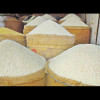Price support still eludes rice farmers
Providing price support for farmers has always been a top policy goal of almost every government. In practice, however, successive governments procured very little paddy from growers in the last three decades.
Since 1991, the Directorate of Food bought only 15 percent of its total annual purchase of the staple in the form of paddy from growers when it procured the rest 85 percent in the form of rice from millers.
As a result, millers have gained more from the government’s food grain procurement policy, the number one objective of which is to provide price support to farmers.
Even this year, when farmers are facing huge losses due to falling prices of paddy, the government is buying only 1.5 lakh tonnes of paddy from them. In contrast, it plans to procure 12.5 lakh tonnes of rice from millers.
“Historically, we have seen that the government has not been successful in giving price support to farmers,” said Quazi Shahabuddin, former director general of Bangladesh Institute of Development Studies.
“But this is an extraordinary year and it calls for extraordinary measures,” he said, suggesting that the government buy more paddy from growers.
Rice accounts for more than 70 percent of the total annual cropped area of 1.54 crore hectares, and 77 percent of marginal and small famers depend on rice for food security and their livelihoods, according to Bangladesh Integrated Household Survey 2015 done by the International Food Policy Research Institute (IFPRI).
In the 1980s, the government mostly bought paddy from farmers to provide them price support. But it later moved to buy rice from millers instead to build public food stock, and to give incentive to producers, said some former officials of the food directorate.
Before 1989-90, most of the grain procured was in the form of paddy. But since 1989-90, the bulk of the purchase by the government has been in the form of rice, said the IFPRI study published in March 1993.
In the 1990s, farmers could sell paddy at rice mill gate for the government-fixed price in the presence of food directorate officials. This system was stopped in 1992, said Ilahi Dad Khan, former director of procurement of the DG Food.
Food ministry officials say storing paddy requires more space than rice. Also, a significant amount of paddy does not have any grain inside. Then there is the risk of paddy being damaged if left in warehouses for long. These are some of the reasons why the government prefers buying rice.
Between 1992 and 2019, government’s annual procurement of paddy has crossed 2 lakh tonnes only in 2016.
The amount of paddy and rice to be purchased every year is decided by a government committee, headed by the food minister.
But there is no guideline to determine the ratio of paddy and rice to be procured in a particular season, said Zulfiquar Rahman, director procurement at the Directorate of Food.
The quantity is often determined based on the stock of food grains in the state storages, and distribution requirements under various social safety net and public food distribution schemes. And building of public stocks turns out to be the prime goal in practice, officials said.
“In reality, purchase of paddy is only symbolic,” he added.
Food Secretary Shahabuddin Ahmed defended the procurement policy, although he could not say why the government was increasingly buying more rice instead of paddy.
Prices of paddy would drop further if the government does not fix the price, he said.
The government warehouses have a capacity to store only 21 lakh tonnes of food grain, and none of them are paddy silo, he added.
“We are now planning to set up paddy silos with 10 lakh tonne capacity across the country. If we can do it, the government will be able to buy more paddy and more farmers will be benefited,” he said.
The ministry is now planning to place a project proposal before the cabinet.
Prof Jahangir Alam of Bangladesh Agriculture University said government’s rice procurement from millers indirectly affects paddy prices.
“We have found farmers benefit from government procurement from the domestic market. But farmers will benefit more if the government buys more paddy from them,” he said.

 For all latest news, follow The Daily Star's Google News channel.
For all latest news, follow The Daily Star's Google News channel. 








Comments